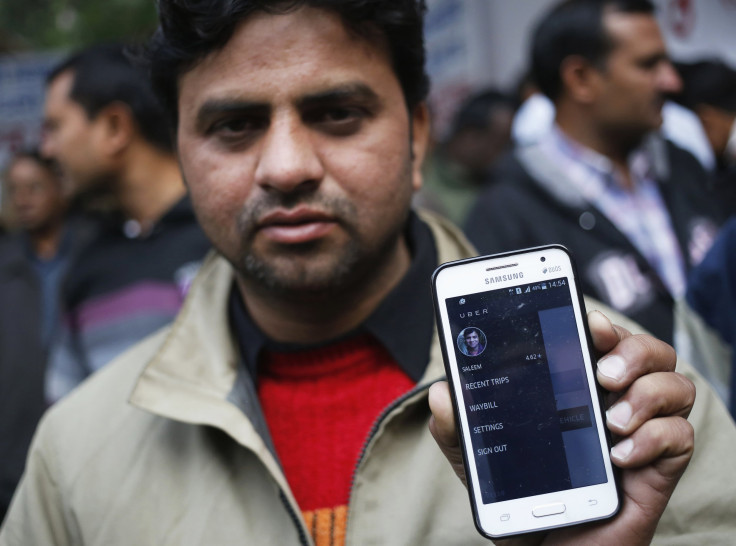Uber Drivers Take To The Streets In New Delhi To Protest Local Ride-Sharing Ban

Uber drivers in New Delhi, along with drivers for rival Indian ride-hailing services, are protesting police enforcement of a ban on app-based transportation networks, which they say threatens their livelihoods.
An estimated 300 drivers belonging to either Uber’s network or SoftBank Corp.-backed ANI Technologies Pvt. Ltd., which operates Ola Cabs, the largest cab-hailing service in India, protested the ban in the capital on Monday, the Wall Street Journal reported.
Uber and its local competitors were banned in December by New Delhi’s state government after a passenger said she was raped by her Uber driver. The state’s transport department last week rejected applications by the cab-hailing startups for permits to conduct business under existing rules governing radio taxi operators. “The license application for all aggregator companies has been rejected,” Uber said in an emailed statement to International Business Times.
The cab-hailing service providers had continued to operate in Delhi as the ban had not been fully enforced until last week. Police started to hail the cabs themselves, using the cab-hailing apps, and book the drivers when they arrived at the pick-up points, India’s First Post reported.
What seems to have irked local authorities is the failure of the cab aggregators, as the service providers are often called in India, to provide formal statements attesting that they had complied with the ban. Uber, which is seeking talks with government authorities, has termed the police enforcement “unilateral.”
In its statement, Uber said: "Our commitment to serving the Delhi community and supporting our partner drivers who share the same commitment remains as strong as ever. We look forward to engaging closely with the Delhi government; moving towards an amicable resolution of the licensing issue; moving towards a safer Delhi.”
New radio taxi rules will be released shortly in New Delhi which will require, among other measures, local control rooms to be set up and details of all cab drivers to be provided to transport authorities, First Post reported.
Public transport in India’s cities is hugely inadequate and demand for the cab-hailing services outstrips supply by about five to one, according to estimates by the aggregators and their investors. Concerns about the safety of passengers remain, even though Uber has taken steps to reduce risk, like introducing a panic button within its app and engaging independent verification agencies to check drivers' backgrounds.
Uber supporters in India say the cab-hailing startups have brought a number of innovations to the market, cutting out middlemen and helping drivers buy their own cars with bank loans and raising their incomes.
© Copyright IBTimes 2024. All rights reserved.












